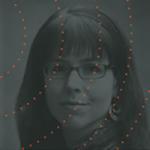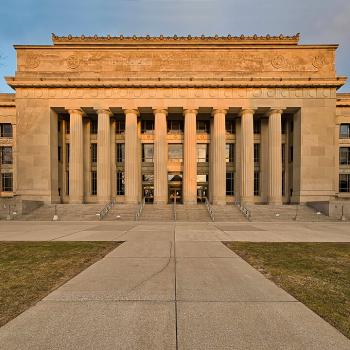
It seems that whenever I hear Christians talk about the consequences of Adam and Eve’s sin and their expulsion from Eden, the conversation revolves around debates on gender roles in marriage and in the church. But there is another monumental significance of the Fall that, I contend, we should be thinking about more. This one has to do with work. Before the Fall, work was a joyous task that Adam and Eve were created to do and enjoy. Their work was made for their flourishing, and they were perfectly made for it–called by God to do it.
Ever since the Fall, by contrast, work has become a curse. Just think how common it is, when people talk about work, to complain about how awful it is. Indeed, many jobs seem to be truly terrible. Or maybe supervisors or co-workers in some cases turn what could be a decent job into utter misery–and maybe we ourselves sometimes are those terrible supervisors or co-workers, as Elizabeth Stice pointed out in a recent essay.
But perhaps the bigger problem is that some of us do not feel like the jobs we’re in are the sort of work that was made for anyone’s flourishing. And, on a related note, we definitely do not feel like we were called by God to do something that makes us deeply miserable. Surely one Job out there was enough (pun intended)? But, then, what are we called to do, when it comes to work? How do we discern God’s call upon our lives?
There is an important distinction that we sometimes forget to our own detriment: vocation and career are not the same thing. All of us have a calling upon our lives, even if some of us feel it more acutely than others. This calling, “vocatio” in Latin, is the root of the English term “vocation.” But this is where it sometimes gets confusing. Too often when people today talk about vocation and discerning the call, they are referring generally to a career field or even to a specific job. But that is not what a calling is. One well-known individual whose life demonstrates this well is the nineteenth century American writer and nature-lover Henry David Thoreau.
John Kaag and Jonathan Van Belle’s forthcoming book on Thoreau the worker, Henry at Work: Thoreau on Making a Living, notes Thoreau’s frequent career changes over the course of his life. We remember Thoreau today because of his writings–the many essays (good), some poetry (middling), and two books published during his lifetime (Walden especially influential). But while he wrote prolifically, this was not his main career. As far as an official job title goes, he was at different points a teacher and private tutor, a worker in his family’s pencil-making business, and a land surveyor. In other words, “writer” was never his main or official job or career. It seems safe to say, however, that it was his calling. But this distinction between career and calling is not one that we generally acknowledge in everyday polite discourse.
“What do you do?” This oh-so-common question that people ask when they are meeting someone for the first time and are trying to get to know that person has always irked me a little bit. It assumes a degree of identity-pegging. You are what you do. Of course, that is sort of true. We are at least partly defined by our work—that thing we do for approximately forty out of the hundred-sixty-eight hours each week—even as theologians and mental health professionals alike warn that it is unhealthy for people to root their identity mainly or solely in their work. It is impossible to spend one half of our waking hours much of the week doing something and not let this work permeate into our souls and shape us in some way.
As for the growing number of those who are miserable in their job, Wendell Berry has strikingly described them as a sort of living dead: instead of living their lives in a meaningful way, they continually will their lives away as they count down to the end of the work day, the work week, the next vacation, retirement. For Berry, the problem that got so many people to this mournful state is the excessive focus in today’s culture on just holding a job, rather than discerning one’s true vocation.
Berry is right, of course, and Thoreau would have whole-heartedly agreed. But the terms remain loaded and difficult to distinguish. Indeed, the excessive focus on getting people into jobs instead of helping them discern their true calling is one that Dorothy Sayers too bemoaned in no less strong terms in 1940s Britain. It seems that modern society falls into this trap much too easily.
Perhaps, I contend, it is better to think of calling versus a career field or a job in the same terms that biologists think of genus and species: a vocation is the broader umbrella that encompasses who we are and what God is calling us to do while we inhabit this mortal coil. A career or a job is a smaller manifestation of that vocation at a particular stage of life—it is the species of the genus in my proposed biological analogy. This career can be life-long, as it used to be for so many people in previous generations. But increasingly often, it is temporary and transient. This means that we should not allow it to define us or take too strong a hold upon us.
Doors open and close. But who we are, who we were created to be, and what we are called to do in the big scheme of our lives, remains the same. The more aware of this we are, the less likely we are to be shaken by an unexpected closed door in a career into which we have poured years of our lives only to watch it slip away or transform into a bitter curse. Indeed, the reason I have been thinking about this distinction of late is because I need to find a new answer for that annoying-yet-ubiquitous “what do you do?” question after this academic year concludes.
In July, I am walking away from a career that I have had for the past fifteen years. I am doing so willingly. After all, I am a tenured full professor. But to be a Christian and a humanities professor at my secular state university has become a call to suffer over the past two years. And words cannot describe just how burned out I am with online teaching–the main kind of teaching I have been doing for almost a decade now. There is no doubt, therefore, that my decision is the best one for me and my family at this point. As I told a friend recently, I am replaceable at work. I am not replaceable at home. Still, making this leap of faith—and that is what this feels like!—takes an emotional toll. Irreversible decisions are the most painful of all, especially when they involve issues of identity.
Arguably, few professions are as identity-engulfing as academia. This may be, at least in part, because of the significant time investment involved to get into this career. I spent a total of nine years combined acquiring first my BA and then the Ph.D. Even if I live to age ninety, this time of schooling will still constitute ten percent of my lifespan. And then there was the time, effort, and sheer luck that is involved nowadays in finding that unicorn of unicorns–a tenure-track position. The more we invest into something, the harder it is to walk away from it. And yet, as a number of articles over the past couple of years have noted, the “Great Resignation” has reached even academia now.
A number of recent studies have focused on analyzing the reasons for this trend that has now gained traction even among tenured faculty like me. But I am more interested in how this trend reflects the intricate puzzle of work, calling, and identity. It was comforting for me to realize that while I am leaving this particular job, my vocation remains the same.
I have come to realize that my calling is to love people and ideas. In this order. Of course, loving ideas means knowing how to love well the people who hold these ideas, because ideas (and books that grow out of these ideas) do not exist in a vacuum. This calling has manifested itself in my life so far in such tasks in different spheres as teaching undergraduate and graduate students for the past fifteen years, homeschooling my own children, writing increasingly more myself, and encouraging in various small ways the wonderful scholars and writers whose work I appreciate.
A God-honoring calling should be rooted in relationships, not in our career. We are called to these relationships, and they challenge us in this individualistic society of ours by not allowing us to wallow in selfishness or self-pity when things at work don’t go well. And so, I know that as I walk away from my academic career, I am still called to be a wife, mother, and friend to (hopefully) many. Most of all, I am grateful for the calling that I first felt almost twelve years ago as a daughter of God. And so, I am eager to continue to cultivate these relationships and serve other people in ways that draw on the gifts God has given me.
Will a new career materialize at some point? Perhaps. God can open and close doors, and both of these processes can be so much more spectacular than anything we could plan, if we were sole authors in the dramatic script of our lives. In particular, I am grateful for the doors that God has opened for me to write over the past two years. My first book will come out this fall. My second book is under contract and will be complete by this summer’s end. I have been grateful for the opportunity to write shorter essays and articles for a variety of outlets. And I cherish the intellectual labor I get to do at Current, where I am book review editor and also run the Arena blog.
But this writing, just like my soon-to-end career as a college professor, does not define me. It is merely another manifestation of my larger calling to care for people, to meet them where they are physically and spiritually, and to use my knowledge of the ancient world to speak something useful into this confusing present.
A realization of our true life-long calling may come in times of crisis, when we sense the ending of one job or career. Stripping away all the clutter and detritus of daily minutia suddenly leaves the essential truth bare and obvious, perhaps for the first time. Such a moment can feel, at our lowest moments, like a desert. But even this time should call us back to community, to relationships, to people who are both difficult yet lovable. For it is there that we live out our calling.













